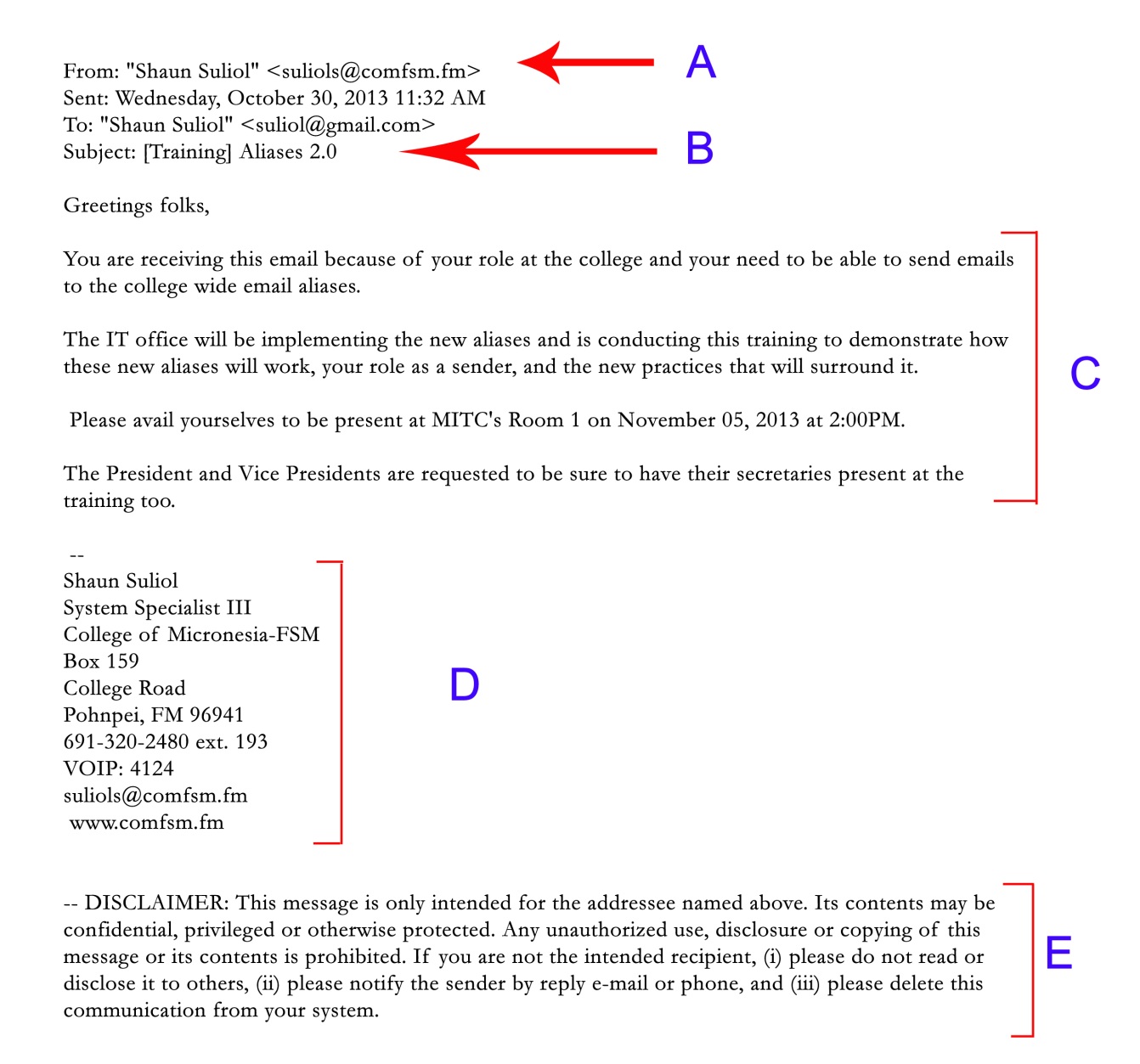- Our College
- Academics
- Student Services
- Public Reports
- Forum
- Library
- Quick Access
COM-FSM email usage is governed by Administrative Procedure 8400 . This publication guide outlines the proper formatting and presentation of email with respect to that policy.
Public and campus announcements should be distributed through the college website and information panels rather than through emails. With the approval of office or department heads, designated, trained staff members are able to post these types of information.
All official emails sent on behalf of the college or a college department or office will follow the criteria described below:
| DO | DO NOT |
|
|
Email is a computing resource provided by the College of Micronesia-FSM, and is therefore subject to use consistent with the guidelines for those resources.
Email is a form of communication; laws and guidelines of etiquette that apply to other forms of communication apply equally to email. Use of email to harass or intimidate another person, or any other illegal or unlawful purpose is prohibited. Use of email to send chain letters or for "pyramid schemes" is also discouraged.
College electronic mail services may be used for incidental personal purposes provided such use does not interfere with college operation of information technologies including electronic mail services, burden the college with incremental costs, or interfere with the user's employment or other obligations to the college.
Only messages relating to college activities should be sent to the system wide mailing lists. Such mailing lists are for notification of college events, communication of official college messages, and notification of bulletin board discussions. System-provided mailing lists shall not be used for "classified ads" (e.g., "For Sale," "For Lease," etc.) or "free items" (e.g., free kittens, free books, etc.). Users shall not use the system-provided mailing lists for commercial or partisan political purposes.
The structure of the email must have:

Figure 5. Sample COM-FSM Email
This website and all COM-FSM Internet based services are best viewed with Firefox 3.0 or better.
© Copyright 2020 College of Micronesia-FSM | Site Disclaimer
P. O. Box 159, Kolonia, Pohnpei, 96941 - (691) 320-2480
College of Micronesia-FSM is accredited by the Accrediting Commission for Community and Junior Colleges,
Western Association of Schools and Colleges, 428 J Street., Suite 400 Sacramento, CA 95814, (415) 506-0234,
an institutional accrediting body recognized by the Council for Higher Education Accreditation and the U.S. Department of Education.
Additional information about accreditation, including the filing of complaints against member institutions, can be found at: www.accjc.org